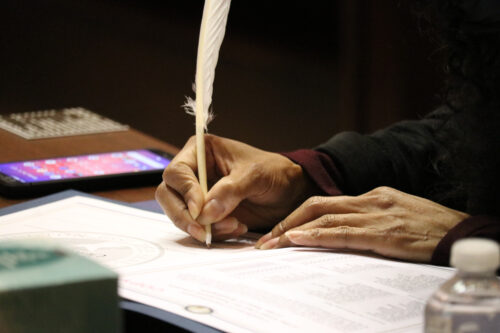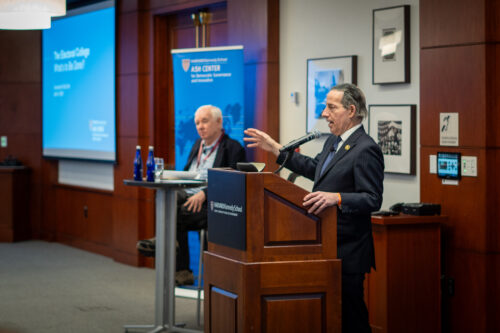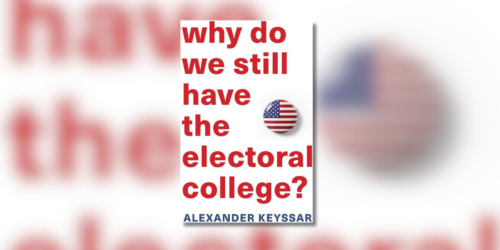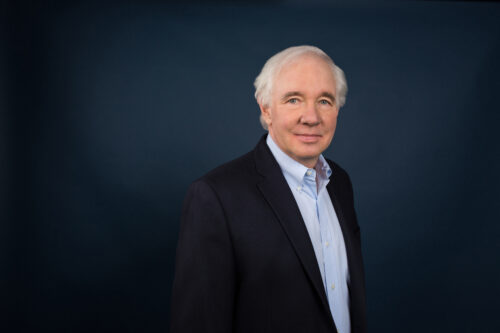
Feature
Additional Resource
The Electoral College is viewed as a democratic anachronism in modern-day America, yet it has persisted for over two centuries despite repeated attempts to reform or abolish the institution. To build off of an Ash Center symposium hosted in April 2024, our scholars and researchers continue to seek answers to some of the biggest questions surrounding why the Electoral College has remained impervious to change for so long and what are the prospects for reform. Below, we invite you to explore several resources geared toward resolving these enduring debates.
Feature
Feature
It’s an accident waiting to happen every four years. I mean, Jefferson himself called it an ink blot on the Constitution. And so, it’s always been recognized that it’s dangerous and dangerously unstable.![]()
Congressman Jamie Raskin
Speaking at the Ash Center Electoral College symposium
Book
Podcast
Podcast
As Venezuela grapples with authoritarian collapse and a controversial U.S. operation that removed Nicolás Maduro, Freddy Guevara joins the podcast to discuss what Venezuelans are feeling and what democratic renewal might actually look like.
Podcast
In the season 2 premiere of Terms of Engagement, Archon Fung and Stephen Richer revisit January 6 with journalist Mary Clare Jalonick to examine what the January 6 Capitol attack reveals about democratic trust, accountability, and political violence.
Podcast
In the season finale, author and political theorist Laura Field joins co-hosts Archon Fung and Stephen Richer to unpack the ideas and beliefs of the New Right and their impact on elections, race, and public debate.
Podcast
As Venezuela grapples with authoritarian collapse and a controversial U.S. operation that removed Nicolás Maduro, Freddy Guevara joins the podcast to discuss what Venezuelans are feeling and what democratic renewal might actually look like.
Podcast
In the season 2 premiere of Terms of Engagement, Archon Fung and Stephen Richer revisit January 6 with journalist Mary Clare Jalonick to examine what the January 6 Capitol attack reveals about democratic trust, accountability, and political violence.
Podcast
In the season finale, author and political theorist Laura Field joins co-hosts Archon Fung and Stephen Richer to unpack the ideas and beliefs of the New Right and their impact on elections, race, and public debate.





